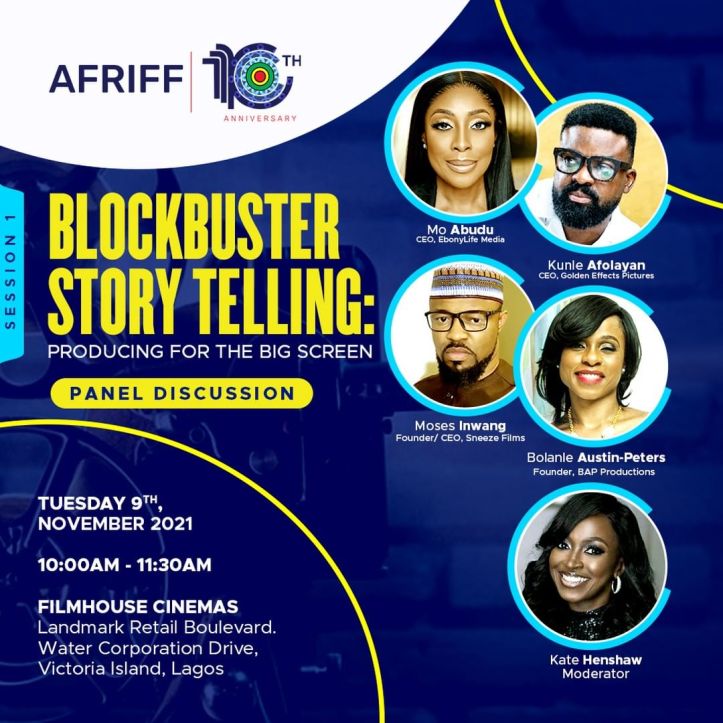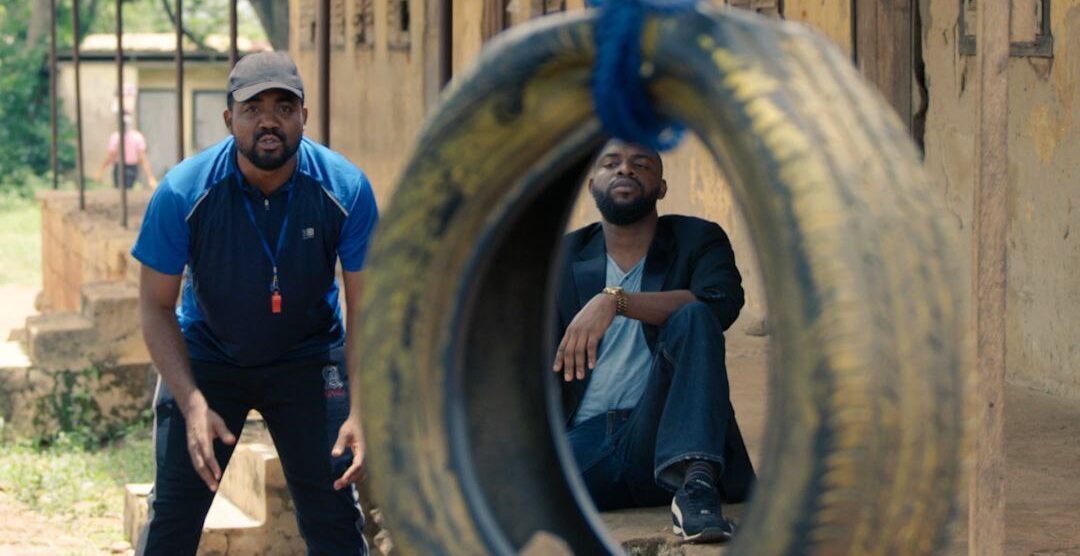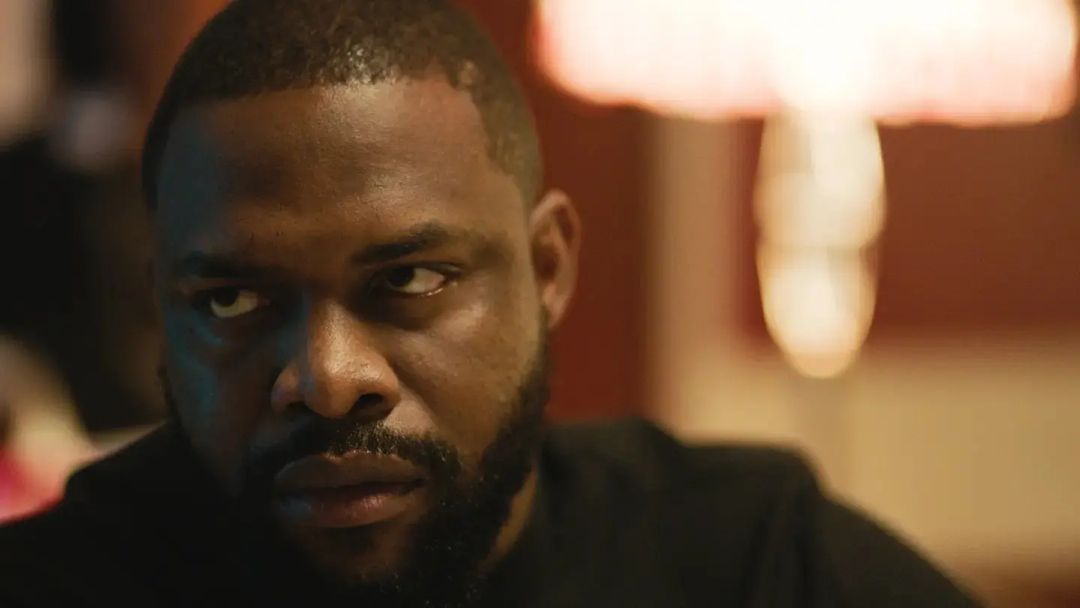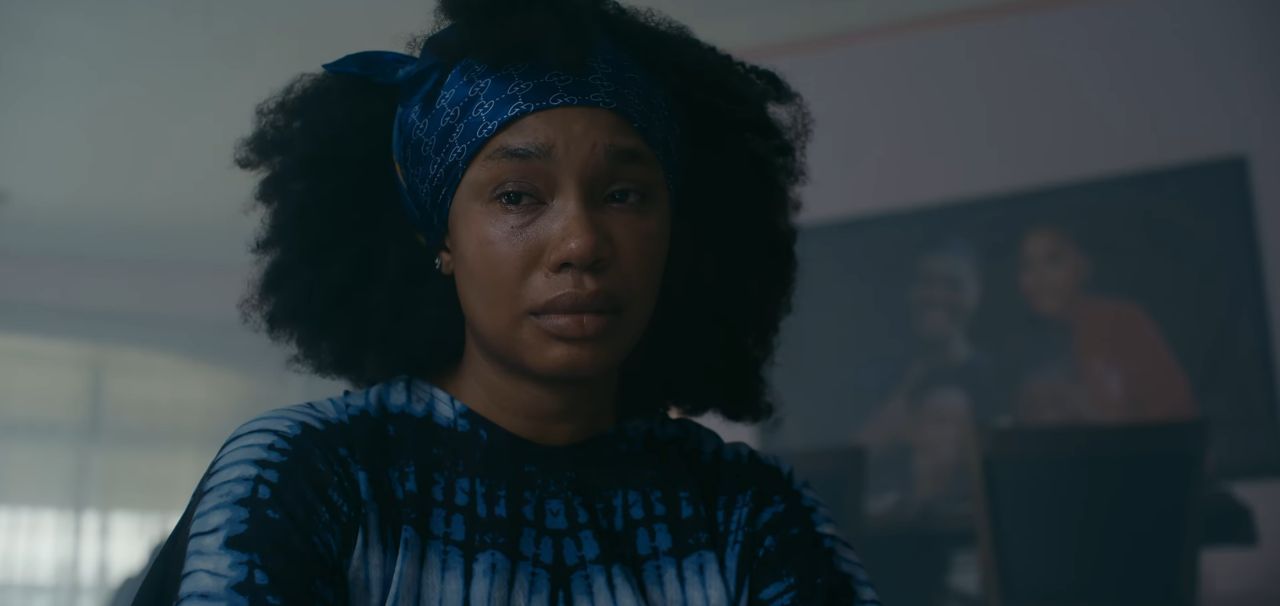The third day of the ongoing AFRIFF (Africa Film International Festival) saw new speakers broach new, interesting topics. The first session, titled Producing for the Big Screen, was anchored by Kate Henshaw, with established industry figure panel members like Bolanle Austen-Peters, Mo Abudu, Moses Inwang (Lockdown), and Kunle Afolayan (Swallow).
Related:
 AFRIFF 2021 Day Two: Amazon Prime Video’s Strategy to Rival Netflix in Sub-Saharan Africa
AFRIFF 2021 Day Two: Amazon Prime Video’s Strategy to Rival Netflix in Sub-Saharan Africa

Asked the question of what a blockbuster is, the panel had varying answers. Mo Abudu believes it is simply a globally in-demand film that transcends the usual strictures of race, gender, class, etc. and the others agreed to that. And to know a blockbuster, Kunle Afolayan went further with his answer, saying it starts from pre-production, the vision of the filmmaker and his entire team. Also, the distribution platform, he believes, is quite important—everything starts from the PR, the vision, and the team involved. For Moses Inwang, a blockbuster is simply any film that’s enjoyed an outstanding commercial success, and that is the only parameter he chooses to acknowledge. How to ensure this success, he feels, is to have the audience in mind. “It’s about them. What they want to see. Then fuse that into your own ideals as a filmmaker.”
Kate Henshaw pushed further with whether we have a blockbuster in Nollywood. Mo named Wedding Party and Kunle Afolayan was quick to point out that before Wedding Party, there was Funke Akindele’s Jenifa, noting “technical-wise, it wasn’t there, but that was a proper blockbuster.” On the obstacles faced in making films, Bolanle Austen-Peters (BAP) and Kunle Afolayan both mentioned acquiring technical skills. Moses Inwang cited funding, stating that with the right amount, you can bring anyone in from anywhere in the world as your crew member. It inevitably led to the question of how money is sourced to make blockbusters; whether the collaboration route is followed or the individual path is taken. Mo said it’s better for four people to raise 100 million with each bringing 25 million to the table than for one person to raise 100 million. “It’s great to do local, but I would like to do local for global,” she said. BAP agrees to collaboration only if it isn’t stressful, stating that sourcing for money, at times, can be humiliating. Kunle Afolayan is even warier about collaborations because of their tendency in Nollywood to end in dispute. He selectively collaborates with those who speak the creative language he speaks. And for Moses Inwang, collaboration is the best thing that’s happened to Nollywood in recent times.
Related:
Everything You Need to Know About Collision Course
During the Q&A, a member of the audience asked the panel about the Nollywood trend of ensemble superstar casting. Where does that leave us as an industry and our upcoming talents who aren’t given opportunities. BAP cited her film, Collision Course, which would be screened on the last day of the festival, as an example of one of those films with numerous undiscovered talents. Mo Abudu cited her first set of presenters at EbonyLife whom no one knew at the time of EbonyLife’s emergence. And Moses Inwang, curtly, said, “You can’t make a blockbuster without stars”.
As a closer, they spoke of their various initiatives to help the next set of filmmakers. Kunle Afolayan spoke of KAP (Kunle Afolayan Production) which has just signed a deal with Masterclass Foundation to train 300,000 filmmakers. KAP is presently E-learning but will start physical schooling in January. For BAP, Terrakulture has trained 600 students in various skills so far, and it can only get better. Moses Inwang spoke of his OneonOne Ng, a platform that brings students to their desired mentors. And Mo Abudu spoke glowingly of her institution which had its students in attendance.
Follow our daily AFRIFF updates on our social media accounts.
 Keep track of upcoming films and TV shows with Google calendar.
Keep track of upcoming films and TV shows with Google calendar.






3 Comments